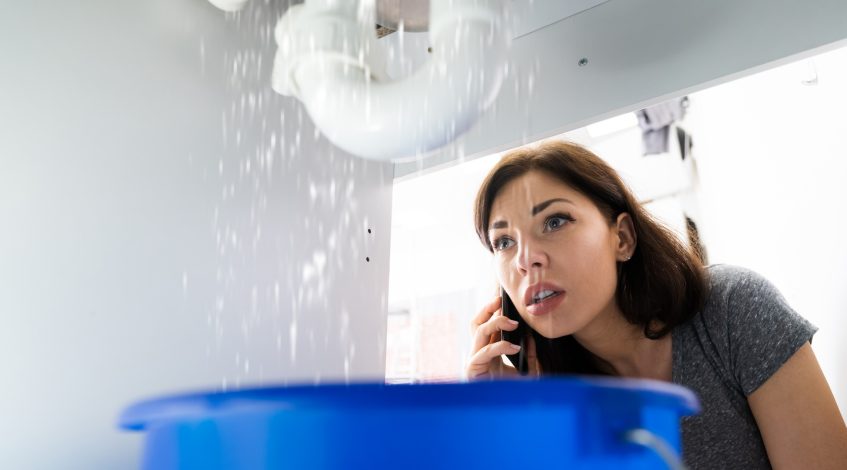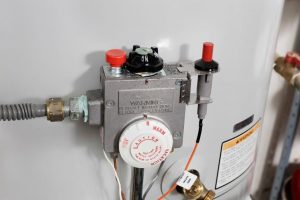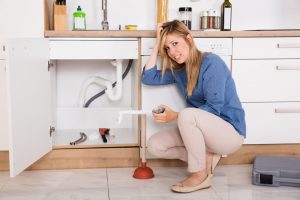Plumbing issues in rental properties are more than an inconvenience. They’re a big financial risk. From burst pipes to faulty toilets, even a small leak can snowball into a major problem.
Landlords and property managers need to stay ahead with preventive maintenance, tenant education, and a clear emergency plan.
If you’re looking to cover all your bases, take a look at NRMA Landlord Insurance for added security – so you’re ready when the unexpected strikes.
Below are the five most common plumbing disasters to watch for, plus steps to help you avoid them.
1. Burst pipes: Hidden risk, heavy cost
Burst pipes can cause thousands of dollars in damage within minutes. Once water seeps into walls and flooring, it leads to mould, structural issues, and costly repairs. Worse still, tenants may need to vacate during remediation, potentially resulting in lost income.
Common causes
- Ageing pipes made of steel or galvanised iron
- Sudden pressure changes from repairs or water hammer
- Rare but real: cold snaps in some Aussie regions
What it can cost you
- Emergency call-out fees
- Long-term water damage repairs
- Lost rent if tenants must vacate during repairs
- Remediation of mould and structural damage
How to prepare
- Insulate exposed pipes, especially in outdoor or basement areas
- Install pressure-limiting valves to prevent bursts caused by spikes
- Encourage tenants to report even minor leaks or stains
- Schedule annual plumbing inspections
Pro tip: Spot a problem early by checking for rust, discoloured patches, or persistent dampness on walls or ceilings. For DIY tips, check out this guide to fixing noisy water pipes.
2. Blocked and overflowing drains: The silent creep
A slowly draining sink might not seem urgent until it backs up and floods a room. Drain blockages are one of the most common and disruptive rental issues, particularly in older properties with ageing infrastructure.
Common culprits
- Hair, food scraps, and grease buildup
- Tree roots infiltrating old underground pipes
- Wet wipes or sanitary items flushed incorrectly
The impact
- Water damage to interiors and cabinetry
- Odours and potential health risks
- Expensive drain clearing or excavation
- Potential breaches of tenancy health standards
Preventative measures
- Install drain guards in kitchens and bathrooms
- Educate tenants on what not to flush or rinse down sinks
- Book routine professional drain cleaning
- Monitor slow drainage or bubbling sounds as early signs of trouble
Need more advice? Check out these simple ways to unblock drains.
3. Hot water system failure: Don’t leave tenants in the cold
Hot water systems rarely fail gracefully. When they do, expect urgent repair requests and potential damage to floors, walls, and contents. A cold shower complaint is often just the beginning.
Warning signs
- Rusty or discoloured water
- Pooling water around the unit
- Knocking or rumbling noises inside the tank
Key risks
- Leaks that grow rapidly
- Dangerous pressure build-up
- Breach of minimum rental standards
- Increased energy costs from inefficient systems
What to do
- Book annual hot water inspections to spot signs of wear early
- Flush the tank every 2-3 years to clear out sediment
- Proactively replace older systems before failure
- Check anode rods regularly to extend the unit’s lifespan
If you suspect a problem, this hot water system troubleshooting guide can help.
4. Toilet malfunctions: Costly and messy
Toilets are often overlooked until something goes wrong. Leaks, blockages, or continuous running water waste resources and wear down your property fast. They also account for a large number of water usage complaints.
What can go wrong
- Silent leaks can damage subflooring and cabinetry
- Overflow from blockages
- High water bills from running cisterns
What to watch
- Worn seals and cracked fittings
- Sluggish flushes or incomplete refill cycles
- Odd noises after flushing that indicate mechanical failure
Landlord action list
- Fit water-saving dual flushes
- Replace faulty parts promptly
- Ask tenants to report any issues early
- Conduct yearly checks of all toilet units in the property
For help, take a close look at this toilet repair guide.
5. Gas leaks: The most serious risk
Gas leaks are dangerous and require urgent attention. They can cause fires, explosions, or carbon monoxide poisoning if undetected. For landlords, this risk must be taken seriously, especially in properties with older gas appliances or poor ventilation.
Signs of a leak
- Rotten egg smell (sulphur-like odour)
- Hissing sounds near pipes or appliances
- Dead patches in garden beds over buried lines
- Tenants reporting unexplained headaches or fatigue
Safety tips
- Use only licensed gas fitters for any work
- Install carbon monoxide detectors in all properties
- Book yearly safety checks for all gas appliances
- Maintain accurate records of inspections and repairs
Need assistance? Here’s where to find trusted gas fitters.
How landlords and property managers can stay ahead
Being proactive is the best way to avoid costly plumbing emergencies. Start with these steps:
- Regular inspections: Identify small issues before they escalate
- Tenant communication: Make it easy to report problems
- Educational resources: Provide tips on usage and maintenance
- Reliable tradespeople: Build relationships with trusted local plumbers
- Documentation: Keep a clear record of all maintenance and responses
Add reminders in your property calendar for annual plumbing checks and appliance reviews. A well-maintained home is not only less stressful to manage but also more appealing to long-term tenants.
Don’t forget insurance
While prevention is key, landlord insurance is your safety net. Water damage, loss of rent, and emergency repairs can all be covered if your policy is up to date. Having insurance in place provides confidence when unforeseen issues arise.
Consider options like NRMA Landlord Insurance to protect against the unexpected. Review policy details for inclusions like:
- Emergency plumbing
- Accidental damage
- Tenant-related losses
- Loss of rent due to uninhabitable conditions
Plumbing problems in rental properties are inevitable, but costly disasters aren’t. With regular maintenance, a clear emergency plan, reliable tradespeople, and appropriate insurance, you can protect your investment and provide peace of mind to your tenants.
Looking for more landlord advice and property maintenance tips? Explore Best Plumbers Club’s guides for smart, actionable strategies to protect your property and your peace of mind.







